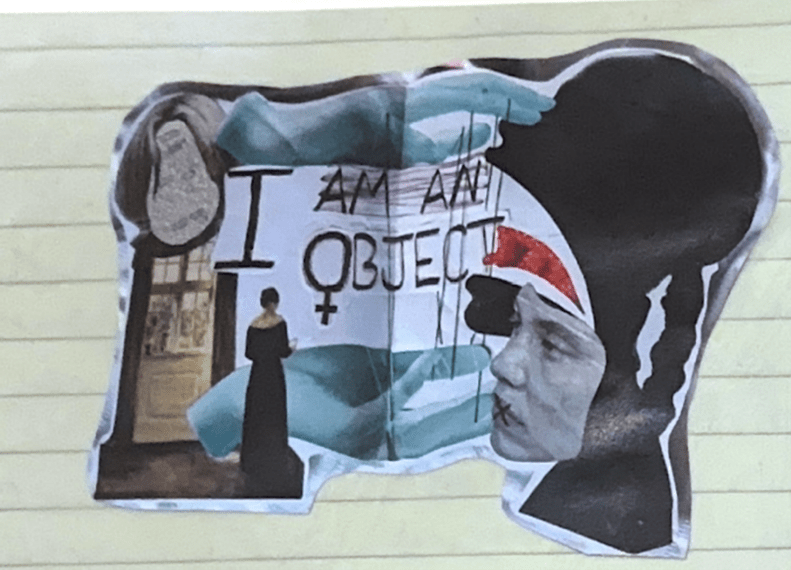by GR Evans
On 1 May 2025 The Guardian headline read: ‘Trump administration exploits landmark civil rights act to fight universities’ diversity initiatives‘. What prevents a British King or Prime Minister from attempting to impose sanctions on universities?
US higher education is exposed both to presidential and to state interference. Government powers to intervene in US HE reside in presidential control of federal funding, which may come with conditions. Trump cannot simply shut down the Department of Education by executive order but it seems he can direct that the Department’s grant- and loan-giving functions are taken on by another government department.
As early as 2023 Donald Trump had said ‘We are going to choke off the money to schools that aid the Marxist assault on our American heritage and on Western civilization itself’. In response to campus protest he removed $400m of Columbia’s federal funding in March 2025 on the grounds that the University had failed to address the alleged ‘persistent harassment of Jewish students’. In April 2025 he gave orders to Ivy League universities, threatening withdrawal of funding if their teaching and research did not comply with Government policy as the President defined it and that their appointments should have regard to those expectations.
On 8 April the Washington Examiner reported a planned attempt to counter such action by legislation, that is to prevent Trump’s directives taking effect by amending the Higher Education Act of 1965 ‘to prohibit political litmus tests in accreditation of institutions of higher education and for other purposes. On 10 April the Chronicle of Higher Education foresaw an Executive Order.
A letter to Harvard dated 11 April signed on behalf of the Department of Education and other federal agencies asserted that the United States had ‘invested in Harvard University’s operations’ because of ‘the value to the country’ of its work, but warned that ‘an investment is not an entitlement.’ This letter, if accepted, was to constitute ‘an agreement in principle’. Governance was to be ‘exclusively’ in the hands of those ‘tenured professors’ and ‘senior leadership’ who were ‘committed to the ‘changes indicated in this letter’. Its ‘hiring and related data’ and its student ‘admissions data’ were to be ‘shared with the federal Government’. International students ‘hostile to American values’ were not to be admitted and those already admitted were to be reported to federal authorities. Policies on diversity, equity and inclusion were to end and student protest restricted.
Harvard and other Ivy League Universities were indignant. Harvard in particular rode the headlines for some days, objecting to the Government demand that it immediately agree:
to implement the Trump administration’s demands to overhaul the University’s governance and leadership, academic programs, admissions system, hiring process, and discipline system—with the promise of more demands to come
and thus ‘overtly seek to impose on Harvard University political views and policy preferences advanced by the Trump administration and commit the University to punishing disfavored speech’. There were reports that US academics were seeking to escape to employment in Canada, the UK or Europe.
The American Association of Colleges and Universities(AACU), founded in 1915 as the Association of American Colleges, now has a wide-ranging and international membership. It is a loose counterpart to the British Universities UK which also has a membership including an extensive range of higher education providers. The AACU issued a Call for Constructive Engagement on 22 April, 2025, but litigation was already in hand, with the President and Fellows of Harvard seeking declaratory and injunctive relief on 21 April. Harvard is listed as the plaintiff with a considerable list of defendants identified (paras 15-30). In its submission Harvard argued that:
American institutions of higher learning have in common the essential freedom to determine, on academic grounds, whom to admit and what is taught, how, and by whom
and that such ‘American institutions of higher learning’ were ‘essential to American prosperity’.
It stressed a ‘longstanding collaboration between universities such as Harvard and the federal government dating back to the Second World War’. It pointed to Harvard’s success in using federal funding to achieving significant research outcomes. The recent ‘broad attack of Government’ on ‘universities across America’, not only on Harvard and the other Ivy League Universities listed, had affected the ‘critical funding partnerships’ that made this invaluable research possible.
This case was being brought because, it was argued, the Government had been using ‘the withholding of federal funding as leverage to gain control of academic decision making at Harvard’. Harvard cited the Government’s letter of 11 April as demanding governance reform and a ‘third-party’ audit ‘of the viewpoints of Harvard’s student body, faculty, and staff’, followed by the hiring of new Faculty and admission of students whose views were satisfactory to the Government. It had asserted that teaching should be ‘to the Government’s satisfaction as determined in the Government’s sole discretion’ and to that end Harvard should ‘terminate or reform its academic “programs” to the Government’s liking’. The Government had since ‘launched multiple investigations and other actions against Harvard’.
The Government had ‘within hours of the Freeze Order ‘ended ‘$2.2 billion in multiyear grants and $60M in multiyear contract value to Harvard University’ and Harvard began receiving ‘stop work orders’. In order to bring a case against the Government it was essential for Harvard to establish that the Government’s action constituted a breach of public law. To that end it stated that the ‘Court has jurisdiction over Harvard’s claims’ because the University did not ‘seek money damages or an order mandating specific performance of any contract’, but:
an order declaring unlawful and setting aside sweeping agency action taken in violation of Harvard’s constitutional rights under the First Amendment and its rights guaranteed by statute and regulation.
Harvard stressed that even though it is a private university its research is federally funded ‘through a grant process administered by federal agencies’. It cited Title VI of the Civil Rights Act of 1964 which requires ‘a detailed and mandatory statutory framework’ of procedures to be followed. Harvard had its own procedures, added to or created in August, September and November 2024. Specifically in March 2025, Harvard released updated “Frequently Asked Questions” clarifying that both Jewish and Israeli identities are covered by the University’s Non-Discrimination Policy.
Harvard explained that it had attempted ‘collaboration’ in the weeks following the government letter and the Federal Task Force’s press release announcing campus visits. It had sought to arrange a meeting on the campus and that was scheduled for late April 2025, yet on April 20 it was reported that the ‘Trump administration has grown so furious with Harvard University’ that ‘it is planning to pull an additional $1 billion of the school’s funding for health research.’
Trump’s threatened sanctions concerned the future of Harvard’s funding. Harvard has endowments of c$53 billion so any threat from Trump to reduce federal funding posed a limited risk to its future. However he made a further proposal on 18 April to remove Harvard’s exemption from Government tax on its income, which could have hit its normal operation harder.
The US counterpart to HMRC is its Internal Revenue Service (IRS). The IRS may grant tax-exempt status to a charitable, religious, scientific or literary organization, on condition that it refrains from campaigning or seeking to modify legislation. However, the President is not permitted to direct the IRS to conduct an investigation or audit. To that extent the counterbalancing of executive, legislative and judicial powers in the US seems to be holding.
Harvard was making its challenge at a time when the balance between the executive and the judiciary in the US had come into question in a number of cases where Trump’s executive orders sought to override the courts. It claimed that ‘the Freeze Order is part of a broader effort by the Government to punish Harvard for protecting its constitutional rights. … multiple news outlets have reported that the Internal Revenue Service is considering revoking its recognition of Harvard’s tax exempt status’. Representing 86 universities, the Presidents’ Alliance has filed an Amicus brief supporting the litigation.
Harvard sought in its litigation to have the Freeze Order declared unconstitutional and also the ‘unconstitutional conditions’ sought to be imposed in the April 3 and April 11 and any action taken under it so far, also banning any future orders in the same vein. It pleaded six Counts, first a violation of the First Amendment in that the letters had targeted the ‘academic content that Harvard professors “teach students”’. Count 2 was that ‘even if the prerequisites of review under the Administrative Procedure Act were not satisfied, federal courts have the “equitable power” to “enjoin unconstitutional actions by state and federal officers.”’ Count 3 was that Title VI does not permit wholesale freezing of a recipient’s federal financial assistance. Instead, it requires that a “refusal to grant or to continue assistance” be “limited in its effect to the particular program, or part thereof, in which . . . noncompliance has been so found.” Count 4 was the Government’s failure to ‘comply with their own regulations before freezing Harvard’s federal financial assistance’. Count 5 alleged that the action had been arbitrary and capricious and Count 6 that it had been ultra vires.
At Indiana University a professor of Germanic studies was recently investigated under a state law after a student accused him of speech in support of Palestine.
Could this happen in the UK?
English higher education providers have their autonomy protected by the Higher Education and Research Act (2017)s.2 [HERA]. This legislation created the Office for Students, a non-departmental public body, whose nearest US counterpart is the Higher Learning Commission, an independent agency founded in 1895 which accredits higher education institutions. The University of Michigan, for example seeks, renewal of its accreditation from the Higher Learning Commission every ten years.
The Office for Students is both regulator and funder, and distributes Government funding to higher education providers. This may take into account ‘particular policy areas and government priorities. Yet HERA outlaws any attempt by the OfS to impose the restrictions Trump sought to impose on the universities of the USA. English higher education providers must be free:
(i) to determine the content of particular courses and the manner in which they are taught, supervised and assessed,
(ii) to determine the criteria for the selection, appointment and dismissal of academic staff and apply those criteria in particular cases, and
(iii) to determine the criteria for the admission of students and apply those criteria in particular cases.
Academic staff in England also enjoy ‘freedom within the law’:
(i) to question and test received wisdom, and
(ii) to put forward new ideas and controversial or unpopular opinions,
without placing themselves in jeopardy of losing their jobs or privileges they may have at the providers.
There is some Government oversight. In protecting ‘the institutional autonomy of English higher e providers’, the Office for Students is subject to the ‘guidance’ of the Secretary of State, though Government requirements are held off by the legislative fencing. The guidance of a higher education provider by the Office for Students:
must not relate to—
(a) particular parts of courses of study,
(b) the content of such courses,
(c) the manner in which they are taught, supervised or assessed,
(d) the criteria for the selection, appointment or dismissal of academic staff, or how they are applied, or
(e) the criteria for the admission of students, or how they are applied.
The legislation adds that:
guidance framed by reference to a particular course of study must not guide the OfS to perform a function in a way which prohibits or requires the provision of a particular course of study.
This seems to place universities safely out of reach of the kind of restrictions Trump sought to impose on Harvard and other Ivy League Universities, but the Office for Students is potentially able not only to set its Government funding levels but also affect its students’ access to loans from the Student Loans Company. That can certainly be at risk, for example in the case of the Oxford Business College, whose funding (via franchise arrangements) was blocked in April 2025 when it was found to have abused the student loan system by admitting unqualified students. (US accreditors do hold a lot of power, because universities must be accredited by a federally recognized agency in order to access federal student aid.)
Access to Government funding through the OfS requires listing by the Office for Students on its Register as an approved provider. The Office for Students did not impose its Conditions of Registration on pre-existing universities before including them in 2018 on its first Register under HERA. It simply treated them as proven acceptable providers of higher education. Each university duly publishes an account of its compliance (eg at Oxford) with the requirements which enable it to remain on the Office for Students Register. What might happen if they were found not to have done so? Short of removal from its Register the OfS has been known to impose fines, notably of more than £500,000 in the recent case of the University of Sussex when it was alleged to have failed to follow its own procedures designed to protect academic freedom.
Government oversight of the work of HE providers may overlap with or sit uneasily beside forms of ‘accreditation’ and ’qualification’. The accreditation of qualifications in the UK may be the responsibility of a number of ‘agencies’ external to HE providers, some of which are bodies offering professional qualifications. For example the Solicitors Regulation Authority keeps its own register of qualified solicitors. A university degree may not constitute a ‘qualification’ without the completion of further recognised study, some of which may be provided by the university itself, for example the Postgraduate Certificate in Education.
An area of ‘accreditation’ undergoing significant reform and expansion in the UK covers ‘skills’, including apprenticeships. Not all universities offer their own apprenticeships, though they may recognise some of those available from other providers at Levels 4 and 5. Nevertheless ‘skills’ are potentially at risk of Government intervention. At the beginning of March 2025, the House of Lords was debating whether ‘skills’ might benefit from the establishment of a ‘new executive agency’.
It was recognised that there would need to be a report from the Secretary of State ‘containing draft proposals’ for an agency, ‘to be known as “Skills England”. Ian Sollom MPobjected that that that would represent ‘a significant centralising of power in the hands of the Secretary of State, without providing proper mechanisms for parliamentary oversight or accountability.’ A ‘statutory, departmental body would have more clout’, he argued.
An Institute for Apprenticeships and Technical Education (IfATE) already existed, but it was concerned with qualifications up to Level 5, short of degree-level 6. ‘Skills England’ was intended to begin work in April 2025. ‘When Skills England calls, will anybody answer the phone?’ asked HEPI, pointing to ‘limited autonomy, complex cross-departmental coordination, tensions between national and local priorities, and competing objectives between foundational and higher-level skills need’. Its ‘cross-departmental working’ with Government was unclear.
It looks as though some universities, at least, are safe from any initiative to interfere from above with the right to self-government and to determine what to teach and research. Harvard records a ‘revenue base’ of $65billion, with ‘federal funding ‘ as its largest source of support for research. The research income of Oxford, for example, is £778m, with commercial research income of £148m. That cannot compare with Harvard, but at least Oxford and some others will remain free to choose how to use that income for its academic purposes.
This is a modified version of an article first published by the Oxford Magazine No 477 in May 2025, republished with the permission of the editor and author.
SRHE member GR Evans is Emeritus Professor of Medieval Theology and Intellectual History in the University of Cambridge.









